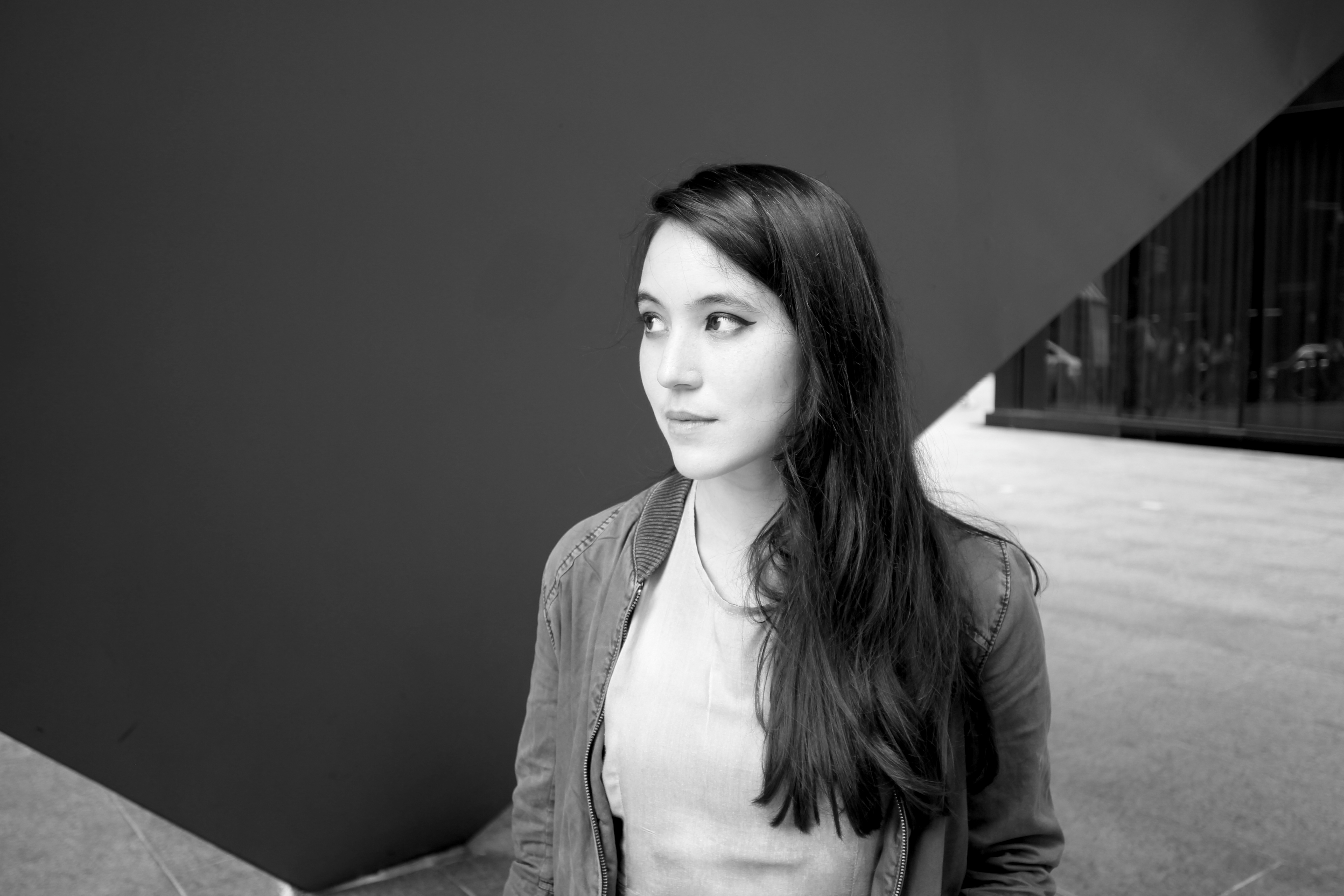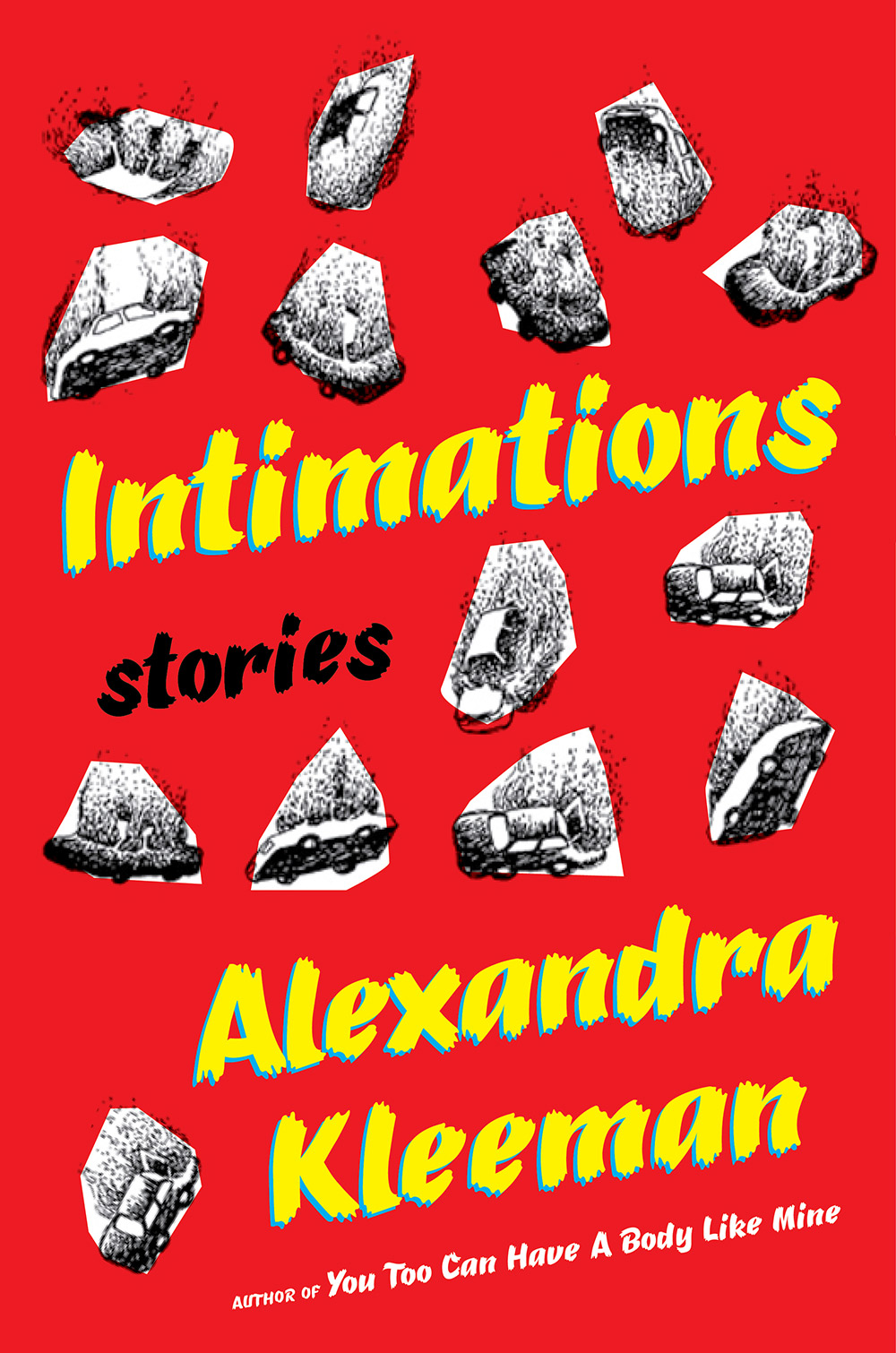Alexandra Kleeman writes spooky and bizarre stories that would keep me up at night if it weren’t for her absurdly humorous premises. Her disturbing 2015 debut novel You Too Can Have a Body Like Mine (Harper) explores the connected lives of three people who spiral out of reality as they become fixated with television. In her sophomore release, Intimations, Kleeman presents a short story collection themed around the human life cycle: birth, living, and death.
Both books are severely twisted (in a good way) (you should totally read them), and luckily for the scaredy-cat in me, I got to chat with the author herself, who spoke with such kindness and vulnerability that I momentarily forgot that Kleeman’s wondrously haunting sentences make me feel all willy-nilly inside. Instead, we explored the magical strangeness that often comes with fear—which I have to say is a terrific, less-scary way to handle overwhelming thoughts. —Jinnie Lee
What made you want to publish a book of short stories as a follow-up to your novel?
Short stories have always been important to my writing process and how I think through ideas. In a lot of ways, short stories are more personal to me because they reflect on a mood I was feeling and they’re really fictionalized versions of things that I’ve experienced. Writing short story fiction makes me feel like I’m allowed to create worlds where I could make things happen—it’s less pressure than writing a novel where you have to create rigid, realistic worlds that have to exist for 300 pages. A lot of my short stories are experimental because I get to single out these little worlds within 10 or 20 pages where the reader doesn’t have to dwell on them like the way they have to dwell on a novel.
The book is themed around the life cycle—reading it often made me think about what it means to be a grown-up, impending mortality, but still feeling immature.
I sort of started looking at myself and assessing, How grown-up do I think of myself today? It’s not a stable quantity and it changes with each thing that I have to do and how capable I feel of doing that thing as a person my age now. There’s probably an age where you accept some particular stage of adulthood, but I think I will carry my childhood with me the rest of my life. I keep thinking, Is this how I expected my life to be? Is this an abnormal way of getting older? Have I gotten older without realizing it? Responsibilities are also much harder to naturalize now.
I don’t know if you get this too, but I’m not a very tall person and my voice is pretty soft and people are always telling me what age they think I am, which is always younger. I wonder when they’ll think of me as the age that I actually am [which is 30] and what that will be like. Will they treat me with more authority then?
Ugh, that reminds me of how I hate being labeled as “cute,” just because I happen to be a small person or have a soft voice. Wait, I’m actually a grown-ass woman.
I know! I feel like I want to be friendly towards that kind of comment because they don’t think there’s anything bad about being “cute” but it’s not what I want to be. I never set out to be “cute.”
I want to ask you about Karen, the protagonist of a series of stories in the middle, “living” section. Did you set out to have her as the headliner, of sorts?
Karen is the centerpiece because I’m really invested in her as a character. It meant a lot to me to explore these dream-like crevices of my life or feelings by looking at a character who is dealing with a lot of the same things that I am. I feel very attached to her stories because I was using my whole person in a way I hadn’t before.
I also love the idea of being a character in multiple places in her life—I love Elissa Schappell’s collection Blueprints for Building Better Girls for that reason. In a short story, you spend time with one character, some events happen, the story ends. What’s interesting to me about a traditional story isn’t so much what how a character changes in the end, but how does that change affect them in the long term? We experience so much but we only experience a couple of major character shifts in our lives. They happen in repetition, like an illusion almost. I like checking in with the same character at different points of his or her life. In this book, Karen makes mistakes that she repeats later in life, but for me I see her trying to do it in a different way.
A lot of your stories are unsettling and spooky. Are you a fearful person?
I was a very frightened kid, the kind of child who wouldn’t want to look at a scary thing but I couldn’t help but look, and then keep looking at it more. Just because you don’t acknowledge that things scare you doesn’t mean that they disappear. I thought that I’d only be safe if I looked directly at it. Somehow I found a way to accommodate myself to living in fear. As I got older, I would read these strange and scary works that were compelling because of their sense of danger—my favorites were gothic novels and murder mysteries that wouldn’t feel safe to me until I got to the end and rooted that fear out. There’s a terrifying book called Blind Owl by Sadegh Hedayat that comes to mind.
Another attitude I can take towards fear—besides being terrified—is making the story funny. [The first story in Intimations is] about being trapped in a house where one person is trying to kill you and the other people don’t care. To play with fear is one of the best ways of learning from it and making it something you can relate to instead of running away from it.
Are you afraid of death?
I’m actually one of the least afraid-of-death people you’ll meet. I’ll probably be afraid of the moments before death, or being trapped, or feeling regret, but I sort of feel like when it happens I’m going to be ready for it. Knowing that it’s there some day makes me want to be excited about life. There are a lot of movies where people seek immortality or want to become a vampire or something, but I think the idea of being immortal sounds terrible. Imagine how many memories you would have, how to cope with direction in life, how many people you would outlive. It seems like a major problem to me.
What’s life on Staten Island like? I’m very curious about it.
I’m from originally from Colorado but my husband grew up on Staten Island. He took a job in New Jersey so Staten Island was convenient. But I was glad to move here because there are actual hiking trails, there’s the waterfront, there are really interesting birds all over the place—it seems like the closest I could get to nature while still living in the New York City metro area.
There are all these nooks of Staten Island that are odd and interesting. I always walk past this sky blue building that has no windows and it says “Ocean Yacht Club Inc” on it. I have no idea what it’s for but I wonder about it a lot. There’s also another building with an indoor skate park with this one window with a strobe light on it. It’s on all day and all night and I wonder about that place too.
What are some things you’re obsessed with right now?
All I’m thinking about right now is The Great British Bake Off. I’m not really into Master Chef or anything but I’m learning a lot about dough and batter and things that you need to know if you want to make flakey pastries. I don’t really bake but I feel like I’m learning something important and bigger than baking.
I’m also teaching a class [at Columbia University] on “strange” right now which is a fun topic for me. I’m teaching this really great translated novel by Yoko Tawada called Memoirs of a Polar Bear that comes out November from New Directions. These animals comment critically on their life experiences—it’s such a funny, out-there premise. It’s inspiring because I think I would never be able to write this kind of book but maybe it will change how I write after I fully digest it.
![]()

